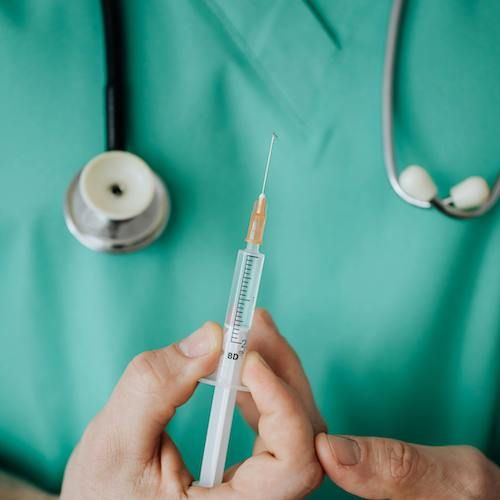Article
Sandoz Proposed Biosimilar Adalimumab Matches Reference Medicine
Author(s):
The long-term study shows biosimilar adalimumab, if approved, will further improve access to treatment for immunological diseases.

Sandoz has announced new data on its proposed biosimilar adalimumab for treatment of several immunological diseases.
Data from the 51-week clinical study confirms biosimilar adalimumab matches reference medicine Humira’s safety and efficacy profile of treatment in patients with moderate-to-severe chronic plaque psoriasis. The proposed biosimilar is currently under review by the European Medicines Agency. Results from the study were presented at the 26th Congress of the European Academy of Dermatology and Venerology (EADV) in Geneva, Switzerland.
“Currently, it is estimated that as few as 5% of eligible psoriasis patients get the biologics they need,” said Mark Levick, MD PhD, global head of development, biopharmaceuticals, Sandoz. “We are pleased that the existing data reinforce the potential of our biosimilar adalimumab, which if approved, could be another treatment option for moderate-to-severe chronic plaque psoriasis and other inflammatory diseases.”
Sandoz expects that approval will further improve access to treatment for those living with immunological diseases like uveitis, pediatric plaque psoriasis, rheumatoid arthritis, hidradenitis suppurativa, among others.
ADACESS (NCT02016105), a phase 3 confirmatory randomized, double-blind, controlled study, compared the efficacy and safety between Sandoz biosimilar adalimumab and the reference medicine in 3 treatment periods.
During the first 17-week period, eligible patients with active, but clinically stable, moderate-to-severe chronic plaque psoriasis were randomized to receive either biosimilar adalimumab or Humira.
In the second period, patients were re-randomized into 4 groups. The first 2 groups continued the originally assigned treatments while the other 2 switched to alternating treatment every 6 weeks until week 35.
In the third period, patients received their initially assigned treatment until week 51.
The study showed that biosimilar adalimumab matched the reference medicine up to week 51.
Psoriasis Area and Severity Index 75 (PASI75) response rates for those receiving biosimilar adalimumab throughout the study were 75.2% at week 17 and 84.5% at week 51, compared with 67.8% at week 17 and 79.6% at week 51 for patients who received continuous treatment with the reference medicine.
Investigator’s Global Assessment (IGA) response rates were also similar between the 2 groups in the study.
There weren’t any clinically relevant differences in adverse effects between the 2 groups and the immunogenicity profiles were consistent.
“Patient access to often critical and expensive biologic medicines is one of the key challenges facing healthcare systems in developed economies today,” Levick said. “Biosimiliars are fundamentally changing the ability of healthcare systems to address this challenge.”
Including biosimilar adalimumab, Sandoz plans to launch a total of 5 major oncology and immunology biosimilars between 2017—2020 and currently has 5 marketed worldwide.
“Encouraging more competition through options like biosimilars, is one way we can help contain or maybe even reduce costs, while spurring innovation for new therapies,” said Sheila Frame, vice president and head, biopharmaceuticals, Sandoz, North America.
A press release was made available.
Related Coverage
Adalimumab Superior to Placebo Across Uveitis Idiopathic Etiologies
Adalimumab Biosimilar Meets Primary Endpoint in Rheumatoid Arthritis Trial
Secukinumab Sets New Benchmark in Psoriasis Treatment with 5-Year Phase 3 Data





